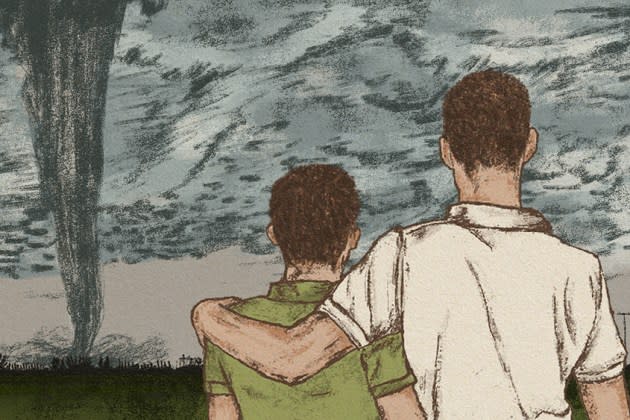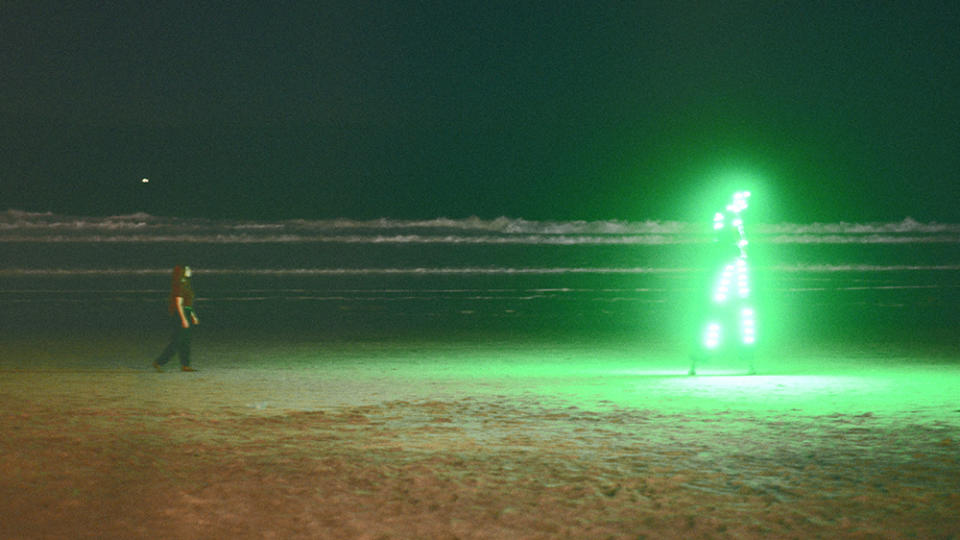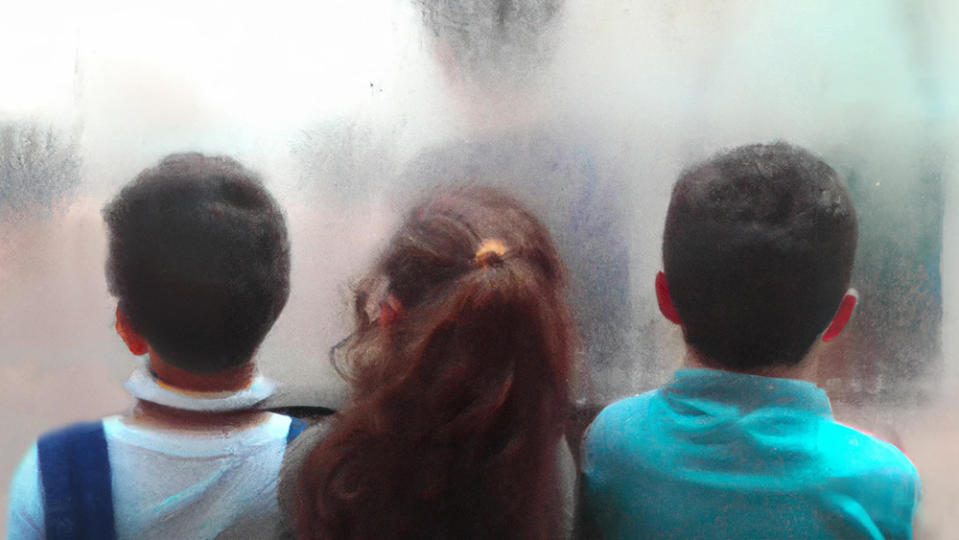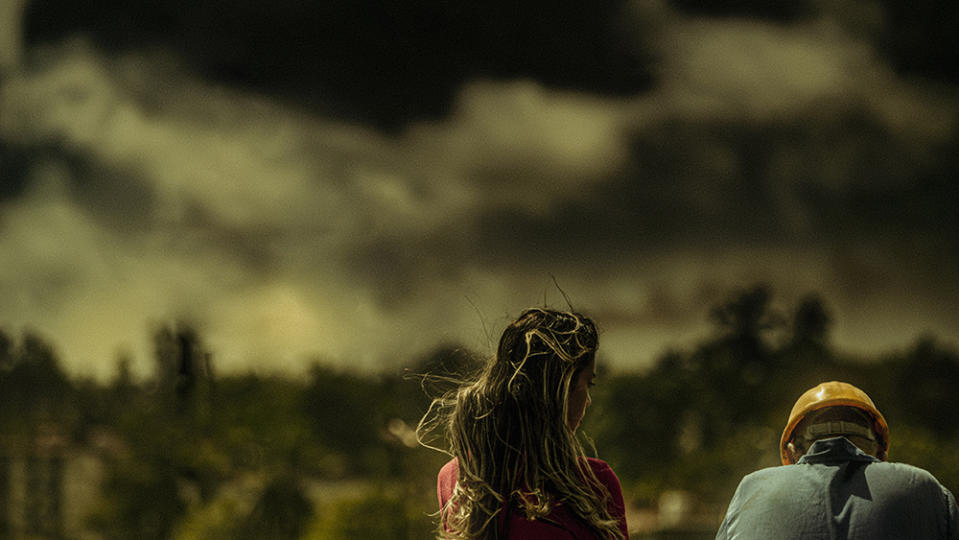Ventana Sur’s Proyecta: César Díaz, Theo Court and Urgent Social Tales Set in Latin America’s Overlooked Regions

Alejandra Villaba García’s “Hyperballad,” Sophia Mocorrea’s “Marriage by Abduction” and Theo Court’s “Three Dark Nights” feature in a 15-title lineup of Ventana Sur’s Proyecta project lineup which is emerging as Ventana’s industry centerpiece as international co-production becomes vital to more ambitious arthouse filmmaking.
Organised by Cannes Marché du Film and the San Sebastian Film Festival, Proyecta received 200 submissions this year, up from 170 in 2022.
More from Variety
There is also good word on a broad range of projects from “The Heart is an Erratic Muscle” to “Moa,” “The Devil’s Well,” “Malena Once Again” and “Water Never Hurt.”
“Hyperballad” has what rates as one of the most potent mixtures in Latin American filmmaking: Genre; an ambitious first feature; and a female director, building on Alejandra Villaba García’s short “Microcastillo,” seen at Cannes’ 2017 Critics’ Week Morelia showcase.
From German-Argentine Sophia Mocorrea, “Marriage by Abduction” scooped the 2021 Les Arcs Talent Village Award, inspired by Mocorrea’s half-hour “The Kidnapping of the Bride,” a best international short film laureate at 2023’s Sundance.
The choral cast of “Three Dark Nights’” is headed by Pablo Larraín’s go-to thesp Alfredo Castro, described by Variety as “reliably superb.” It also marks the third feature of Chilean-Spanish director Theo Court, following up “White on White,” Chile’s Oscar entry and a best director and Fipresci Prize at 2019’s Venice Horizons.
This year’s Proyecta cuts several ways. Most directors at Proyecta have a track record. Just four cases in point. Marcel Beltran’s “Moa” was the biggest winner at Locarno’s 2022 Open Doors; Cuba’s Lisandra López Fabé wrote “Between Dog and Wolf”; Jairo Boisier’s debut, “The Retiree,” played IFF Rotterdam; Cristina Sanchez Salamanca’s short “Bebe” bowed in Tribeca.
Some top Latin American talent is connected with various titles: “Hyperballad” is lead produced by Hiperbalada and co-produced by Piano, whose co-production credits run from “Triangle of Sadness” to “Annette” and “Memoria.” “Elena” is written by Guatemala’s Cesar Díaz, a Cannes Camera d’Or winner as the director of “Our Mothers.”
“Three Dark Nights” is co-produced by “White on White’s” backers, Spain’s El Viaje Films (“Matadero”) and Chile’s Quijote (“The Settlers”).
Yet, if festivals and markets function ever more as filters of new talent, which far out-number market capacity, this is all the more true of Proyecta. 10 of the 15 titles are fiction feature debuts.
“There ’s no doubt about the talent that exists in Latin America. That’s why, a few years ago, we decided to open the call for projects and chose to focus on first and second feature projects,” Proyecta’s organisers said. “It is interesting to support the new perspectives and connect emerging talent with the experience of internationally renowned professionals.”
Projects also point up the artistic concerns of much cutting edge Latin American cinema. Its directors are turning ever more to genre or genre tropes.
“Three Dark Nights” incorporates “film noir, crafting a detective mystery with overtones of a psychological thriller,” notes producer Jamie Weiss.
A coming of age dramatic thriller, “The Devil’s Well” is “an excuse to mix genres” and highlight the battle for a minimum water access,” says producer Diego Pino Anguita.
For producer Carlos Paz, “‘Hyperballad’ is a hybrid horror film that doubles down on a voyeuristic camera and a disturbing atmosphere to articulate a prevailing generational anxiety: To exist for and be consumed by the gaze of the other.”
Broadly two thirds of the stories are set in Latin America’s lesser filmed regions: Brazil’s Pernambuco, Guatemala, Honduras, Salta, east Cuba, far-flung Colombia, central Chile, and pre-Andes Argentina.
“During the selection, we didn’t focus only on the country or region of origin but first of all on the quality of the projects and new vision,” the Proyecta team told Variety. “With the combination of our willingness to bring under the spotlight larger territories and broader perspectives, the selection resulted in a much more diverse and interesting one.”
In a far more classic stratagem, the projects work out deep social and gender tensions through the re-creation or new alignment of family structures via the emergence of non-biological units (“Caraiba Brothers,” “Ideally”) or reconciliation along more balanced lines (“Eva,” “The Heart Is an Erratic Muscle,” “Stink Eye”) or via a new sense of identity after escape from a toxic relationship (“Moa”).
Viewers have family: the story told will be all the more affecting.
A quick drill down on the projects:
“Caraíba Brothers,” (“Irmãos Caraíba,” Eduardo Morotó, Taquary Filmes, Brazil)
The first feature project from Pernambuco’s Agreste Setentrional interior to win federal funding. A fiction chronicle of the northeast working class diaspora experience as teen João hits Rio’s suburbs, falls in with other migrants caring for a little orphan girl. “Starting from a universal history, we want to present our place and our people to the world,” says producer Alexandre Soares Taquary. Film will be made with a sober intimate tone and realism-oriented staging, Morotó adds.
“The Devil’s Well,”(“Los Pozos del Diablo,” Jairo Boisier Olave, Groncho Estudio, Chile, France)
In a town hit by drought, young Estrella, a water diviner, works with her father, in charge of water distribution to the community. She stumbles across a conspiracy to divert water to an avocado plantation. Her father may be involved. Produced by Chiledoc director Diego Pino.
“Elena,” (Dalia Huerta Cano, Stær, Norway, Lithuania, Belgium)
Lead produced by Elisa Pirir at Norway’s Stær and, she says, “by far the most daring and personal film I’ve ever had the pleasure of producing.” Recently boarded by Belgium’s Stenola, it charts the relationship between an ecological activist hero mother, battling against a Norwegian hydro power plant in Guatemala, and her daughter, who never feels stage center. To be helmed with a mix of psychological observance and magical realism by first feature director Dalia Huerta Cano (“Sintomas”).
“Eva,” (William Reyes, Honduras)
On Honduran Ana Isabel Martin Palacios’ slate at Locarno’s Open Doors, set up at Opida and her Fosforito Films, and selected for Cuba’s Nueva Miradas and Mexico’s Cine Qua Non Lab. After her daughter-in-law dies and granddaughter is born, trans mother Eva assumes responsibility for the baby, as Eva and her teen son begin a journey towards reconciliation.

“The Heart is an Erratic Muscle,” (“El Corazón Es un Músculo Errático,” Julián Dabien, Películas V, Argentina)
Set in ‘90s Salta, Argentina’s far North, Sonia, 35, struggles to make her mark as a body-builder in reactionary Salta as her fragile bond with older teen daughter Mavi frays. From Películas V, which scored with Fantastic Fest hit “Rock, Paper, Scissors,” sold by Habanero Film Sales.
“Hyperballad,” (“Hiperbalada,” Alejandra Villalba García, Piano, Mexico)
Tessa, a popular influencer, returns to her childhood home in Tijuana where she is contacted by @murmur0, a strange YouTuber whose internet profile claims they passed away 8 years ago, but still appears online and communicates with her through disturbing videos. The increasingly strange similarities between @murmur0’s tragic fate and her childhood memories plunge Tessa into a deep paranoia.

“Ideally,” (“Lo ideal,” Martina Matzkin, Argentina)
The first feature project of Matzkin, whose “The Name of the Son” won a best short film Crystal Bear at 2020’s Berlin Generation Kplus. A single surgeon proposes to adopt three young siblings, living at a children’s home. A film that reflects on “the importance of building bonds,” says producer Rocío Pichirli. Set up at Argentina’s Groncho Estudio.

“Malena Once Again,” (“Otra vez Malena,” Lisandra López Fabé, Iwa Pele, Cuba, France)
Injured, Malena gives up athletics, trains as a sports doctor, runs compulsively to escape her conflicts, meets promising trans athlete Dé and begins a relationship. “A film about bodies, trans identities and transformations in the midst of the rigid Cuban context,” says producer Claudia Figueredo.

“Marriage by Abduction,” (“Brautraub,” Sophia Mocorrea, Niko Film, Argentina)
Luisa, from Buenos Aires, and Berlin’s Fred plan a wedding that’s a celebration of emancipation from traditional structures. After the bride is abducted, observing a playfully intended German tradition, the couple’s world is turned upside down. “Mocorrea explores existential questions of identity, traditions and power dynamics in intercultural relationships,” notes producer Nicole Gerhards at Niko Film.
“Moa,” (Marcel Beltrán, Mediocielo Films, Cuba; Mediocielo Films, Maria Farinha Films, Brazil; Stems, Dominican Republic)
The fiction feature debut for the fast-emerging Cuban filmmaker after ““La opción zero.” The story, laced by fantasy, of a woman’s battle to escape a toxic relationship leading her into a connection with ancient people, “Visual language is the protagonist in ‘Moa,’” says producer Paula Gastaud at Mediocielo.

“Roberto And The Puppeteers,” (“Roberto y Los Comediantes,”
Verónica Font Alfaro, Spain, Germany, Colombia)
A social-issue drama laced by magic realism unspooling in far-off Colombia, the mother of Roberto, 7, has a risky pregnancy. He sees a visiting puppeteers’ show as one way of saving this mother. Set up at Colombia’s Producciones Doble Banda.
“Stink Eye,” (“Malmirada,” Cristina Sánchez Salamanca, Continente Pictures, Colombia)
A troubled pre-teen is forced to live with her influencer stepmother, finding unexpected refuge in the obnoxiously beautiful woman who wrecked her home. “A close examination of coming of age in a post-pandemic world” redirecting “the gaze towards the female body and show it as it really is: Full of pores, hairs, pus, sweat and blood. A body, nothing less and nothing more,” says Sánchez Salamanca.

“Tell Me How Much You Love Me,” (“Díme Cuánto Me Quieres,” Camila Zavala Chocano, Contenidos Interactivos, Peru)
Zavala’s feature debut, a coming of age drama in which Lucca, 9, attempts to heal his manic-depressive mother. From Enid Campos, “My Lucky Day” producer and “Song Without a Name” associate producer.
“Three Dark Nights,” (“Tres Noches Negras,” Theo Court, el Viaje Films, Spain, Quijote Films, Chile)
A big Proyecta title, produced by Spain’s El Viaje Films (“Matadero”) and Chile’s Quijote Films (“The Settlers”) and set in a small rural town in central Chile. Two Haitian day laborers’ wedding ends with the groom’s death. Suspicion falls on the hacienda owners, then the Devil.
“Water Never Hurt,”(“El Agua Nunca Dolió, Ana Clara Bústelo, Pez Dorado Creative Co, Argentina)
A first feature from Pez Dorado, located in San Juan, Argentina’s pre-Andes West, founded by scribe-helmer Bústelo, behind 2020 social issue doc “By Reason or By Force,” and producer Tatiana Oruste. Operated on, without her consent, Julia, 9, battles to walk. Water reps a way forward.
Best of Variety
Sign up for Variety’s Newsletter. For the latest news, follow us on Facebook, Twitter, and Instagram.

